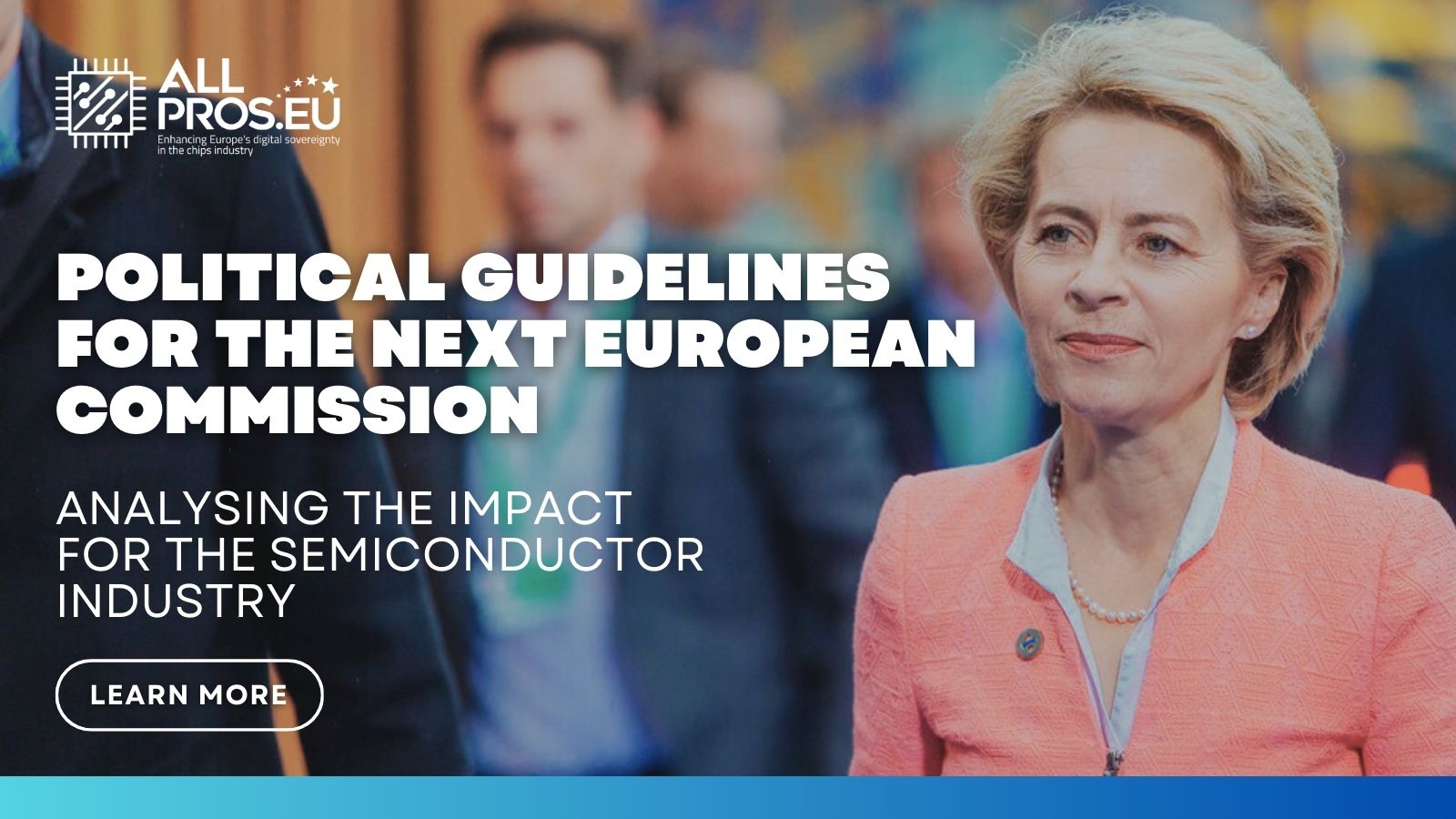
Political Guidelines for the next European Commission: analysing the impact for the semiconductor industry
With the reelection of Ursula von der Leyen for a second 5-year term as President of the European Commission, the focus on sustainable competitiveness and innovation is set to become central in Europe. But what would the the impact of the political objectives proposed by Ursula von der Leyen on the semiconductor industry?
On 18 July, the European Parliament reelected Ursula von der Leyen as the President of the European Commission. For this second mandate, a set of Political Guidelines has been released to provide an overview of the trajectory and priorities for proposed for the next European Commission.
Considering the risks posed by the skills shortage, supply chain disruptions and geopolitical turbulences, the document offers insights into the strategic actions to enhance industries and Europe’s competitiveness. If implemented, many of these measures are expected to have a direct impact on the semiconductor ecosystem.
In regard to research, the Guidelines highlight the need to provide infrastructure to test and innovate through public-private partnerships. In addition, it is proposed to put forward a new European Competitiveness Fund that will ensure the investment capacity for manufacturing strategic technologies in Europe.
A crucial challenge remains the skills and labour gap, which is particularly visible in the semiconductor industry. To address this, it is envisioned to strengthen university-businesses alliances and establish a Union of Skills, which will facilitate training and reskilling across Europe. Furthermore, the Guidelines advance a STEM Education Strategic Plan, which aims to incentivise more women to enter STEM education and careers.
 |
Interested in learning more about how to address skills shortage in Europe? Read the Blueprint Report delivered by the Working Group on Skills by ALLPROS.eu! |
Finally, a new economic foreign policy is proposed to reduce dependencies and boost competitiveness in developing cutting-edge technologies, while reinforcing strategic partnerships and cooperation.
The Political Guidelines presented by Ursula von der Leyen are a call for adopting new measures that will comprehensively address the challenges faced by industry and society. Unity is the common thread running through the document, which sets a new vision that hopefully will reinvigorate Europe’s capabilities in semiconductors manufacturing and other industries.